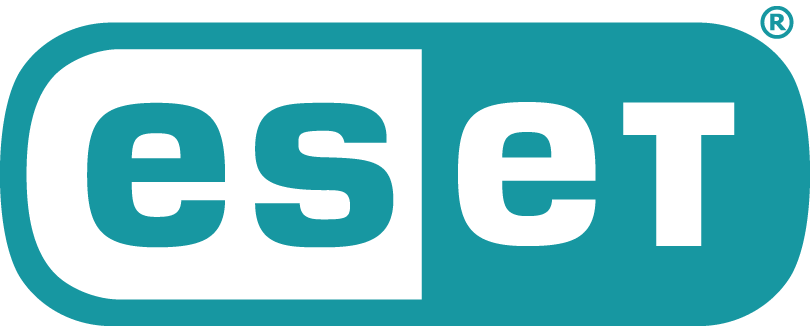ESET is a comprehensive antivirus suite with really good malware detection rates and an excellent host of additional features. It has good web protections and provides access to advanced diagnostics tools.
Avast also offers great anti-malware and web protections, is easier to use, and provides better additional features.
Read on to find out about each product’s key strengths and weaknesses, so you can decide which is right for you.
Avast vs. ESET — Final Verdict:
ESET is better if you’re an advanced user. If you want an antivirus with excellent malware detection rates and know how to make use of advanced tools, then go with ESET.
Avast is better for beginners. If you want an easy-to-use antivirus with a wide range of useful additional features, then go with Avast.
Avast vs. ESET: Malware Protection
ESET’s malware scanner is really comprehensive. It uses a deep system scan that looks for all types of malware, including trojans, rootkits, cryptojackers, worms, and spyware. When I tested ESET’s scanner by hiding more than 1,000 malware samples on my computer, ESET found nearly every sample. The full scan took under an hour to complete on my computer.
ESET also includes really good real-time protection and a Host-based Intrusion Prevention System (HIPS) that managed to block all simulated ransomware attacks I tested against it.
Avast’s anti-malware protection performed really well during my tests. It was able to detect 100% of the malware samples I put on my computer. Once I turned its real-time protection on, Avast was also successful at preventing me from downloading any malicious files.
Avast’s full scan was also pretty fast, taking just under an hour. This is pretty comparable to other top antiviruses. Additionally, I noticed no major slowdowns while the scan was ongoing.
Avast vs. ESET: Web Security
ESET’s web security blocked most phishing websites I tried to visit. It also successfully blocked more websites than Chrome and Firefox’s default protections. However, it blocked some safe websites and made whitelisting them quite difficult.
That said, ESET includes a really strong firewall and network inspector to keep you safe from web-based attacks. I particularly like how the firewall includes a range of filtering options that allow you to change the intensity of the protection. The network inspector lets you scan for network-based vulnerabilities, which is helpful if you want to keep yourself protected from network-based exploit attacks.
Avast provides very good web protections. It prevented me from visiting most of the phishing sites I found on PhishTank and performed better than the default protections on Chrome and Firefox. While I didn’t encounter any false positives during my tests, it also seems really easy to add such websites to an exception list.
Avast’s has a strong firewall. It also includes a lot of advanced settings that you can use to tweak it to your liking. However, I was disappointed to discover that many of these settings are unavailable on its Avast One product line.
Avast vs. ESET: Features
ESET offers coverage on up to 10 devices and includes:
- Firewall.
- Network monitor.
- System cleanup tools.
- Parental controls.
- Anti-theft protection.
- Secure browser.
- Advanced diagnostic tools.
- Password manager.
- 30-day money-back guarantee.
- And more…
I particularly like the advanced diagnostics tools, which let you thoroughly analyze and troubleshoot your system. For example, you can pull up a list of all running processes on your computer and cross-reference them with processes listed on ESET’s cloud database. You’ll see how dangerous a particular process is, how many other users are running the process, and when ESET first recognized the process. This is a great way to identify risks on your system.
I also like ESET’s anti-theft protections, which can completely lock down a stolen device and track its location. This is ideal if you travel a lot with your laptop or want to easily find your phone.
Avast covers up to 30 devices and its plans include:
- Anti-malware protection and real-time protection.
- Web protection.
- VPN.
- Rescue Disk (not included with Avast One).
- Wi-Fi network protection.
- Firewall.
- PC clean-up and optimization tools.
- File shredder (not included with Avast One).
- Sandbox (not included with Avast One).
- 30-day money-back guarantee.
- And more…
I really like Avast’s Rescue Disk feature, which can help recover your computer if it’s infected to the point that it can’t even run properly anymore. I also appreciate the convenience offered by its various optimization tools that help keep your software and drivers up to date, as well as the additional privacy offered by its advanced tracker prevention capabilities.
Avast vs. ESET: Ease of Use
ESET is quick to install and pretty easy to navigate. You can access most features via a panel on the left side of the user interface, and when you click on a feature, it appears in the center of the dashboard.
However, ESET’s user interface isn’t the most intuitive, and while finding the features is easy, it sometimes takes more steps than necessary to set them up. For example, setting up a scheduled scan involves going into 4 different windows, while many competitors let you schedule a scan with one click.
ESET’s mobile app for Android is much more intuitive, and it includes some unique features the desktop version of ESET lacks (like a call filter and app lock).
Avast is one of the most beginner-friendly antiviruses on the market. Its interface is simple and intuitive. Most features can be accessed with just a couple clicks, and all of its major features have descriptions attached to them that explain what they do. Changing its settings is also very easy, especially with its settings search function, which will take you directly to the page the setting you’re looking for is on and even highlight it so you can’t miss it.
Avast’s mobile apps are very user-friendly as well, but like most antiviruses, its iOS app is pretty limited in features.
Avast vs. ESET: Customer Support
ESET offers email and live chat support. You can also visit an online knowledge base that contains helpful forums and product guides. I found these guides pretty informative and easy to follow.
ESET offers phone support, but it’s limited to business plans. My tests showed that connection to an agent was quick, and the agent was efficient and helpful. However, it’s unfortunate that phone support isn’t available with other ESET plans.
Nevertheless, I genuinely appreciated the live chat support. It functions within US working hours and provides service in three languages (English, Spanish, and French). Regardless of which I got in touch with, I consistently encountered a friendly and supportive representative.
Avast offers live chat, email, and phone support. It has a reasonably active forum and a detailed and well-organized online knowledge base as well.
Avast’s live chat representatives are approachable and can address basic queries well. However, one agent seemed to have difficulty understanding some more intricate questions I had.





